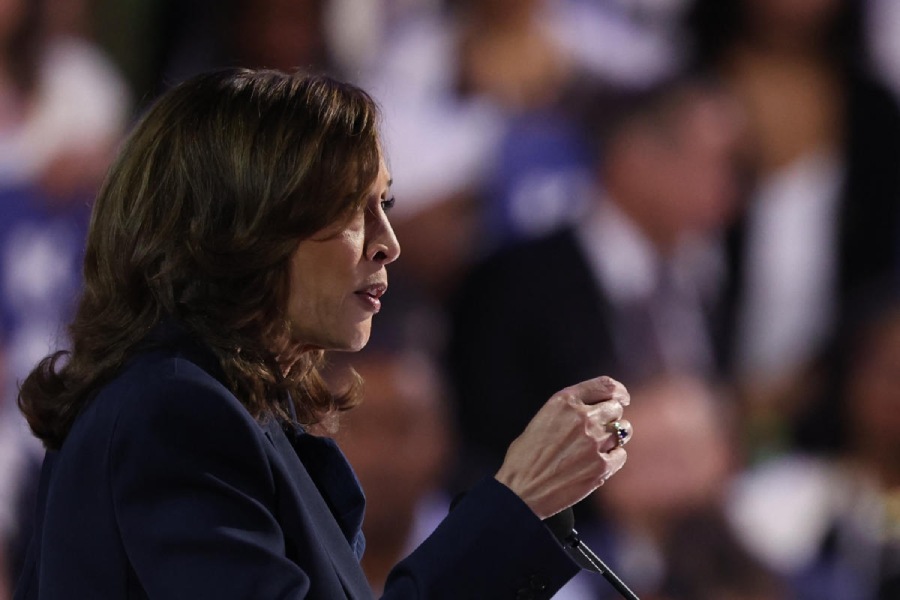With high-profile endorsements and passionate speeches, the Democratic Party in the United States of America has formally nominated the vice-president, Kamala Harris, as its candidate for the November presidential election. The party, which has controlled the White House for 12 of the past 16 years, was deeply divided only weeks earlier over the candidature of President Joe Biden for the election. By rallying behind Ms Harris at the Democratic National Convention last week, the party has sought to leave those fissures behind. Unlike Mr Biden, who was trailing the Republican candidate and former president, Donald Trump, in polling, Ms Harris has quickly drawn level and even taken the lead in some key battleground states that could determine the election. Her campaign is breaking funding records, and Mr Trump appears to be struggling to stop her momentum. Still, she faces major challenges in the weeks ahead. At the DNC, Ms Harris was feted by the former president, Barack Obama, and other Democratic Party luminaries who also attacked Mr Trump's policy positions on everything, from climate change to reproductive rights. But Israel's war on Gaza and the firm support of the Biden-Harris administration for Tel Aviv remain a sensitive issue for the party. The DNC's refusal to even allow a pro-Palestinian speaker has deepened anger against Ms Harris among sections of traditionally pro-Democratic voters. In some swing states like Michigan, they could make the difference between a win and a loss for Ms Harris.
Ms Harris’s rise presents a dilemma. Her Indian ancestry serves as a reminder of the growing influence of the Indian-American community in the US and its ability to act as a bridge between the world's two biggest democracies. But she has also been publicly critical in the past of the Narendra Modi government's revocation of Jammu and Kashmir's special status. To be sure, she has since tried to mend fences, hosting Mr Modi for lunch during his visit to Washington in 2023. And more broadly, India enjoys bipartisan support in the US. But on key geopolitical questions, such as China and Russia, Mr Trump's positions align much more closely with India's than is the case with the Democrats. Mr Modi has built a strong personal rapport with Mr Trump, whom he has described as his friend. Over the next few weeks, New Delhi will watch the election campaign closely, aware that it may need to recalibrate its approach to Washington based on the outcome of the vote.










